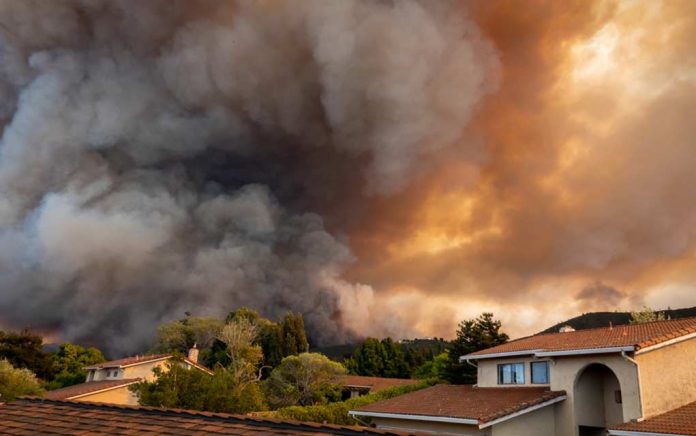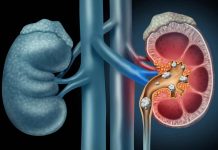
(AscendHealthy.com) – Wildfire season seems to get more unpredictable every year, is spreading to even more locations, and the smoke can affect people states away. Some of us are more susceptible to its effects than others, with sufferers of lung conditions being most at risk. But a heavy enough cloud can be dangerous to even the healthiest of individuals. Here’s how to minimize exposure and stay safe.
Plug Up Any Gaps
The air quality indoors can be significantly better than it is outdoors, but smoke can still get in through gaps around doors and windows. Fireplace flues, vented skylights, air vents and exhaust fans are other potential problem areas. Hawk Environmental recommends going through the home and looking for places where smoke could be entering; anywhere there’s a draft, smoke could be getting in. Replacing inefficient windows and using weather stripping on doors can help.
Purify the Air
Despite efforts to keep smoke out, the air indoors might still need some help staying clear. People who are particularly sensitive to smoke may want to use an air scrubber or high-quality air purifier with a HEPA filter. Consumer Reports maintains a list of air purifiers best-suited to clear out wildfire smoke. Based on effectiveness and value, they narrowed their list to these five choices:
- Alen BreatheSmart Classic Air Purifier – $1248.24
- Blueair Blue Pure 211+ – $281.60 – $440.88
- Blueair Classic 605 – $830
- Honeywell 50250 – $265.69
- Honeywell HPA300 – $250
Some people choose to create a “clean air room,” which has minimal ventilation to the outside and heavy filtration inside. These rooms are devoid of stoves, candles, aerosols, vacuums and other sources of smoke and pollution.
Have Medications Ready
Asthma, COPD and heart disease sufferers are at particular risk of complications from wildfire smoke inhalation. The CDC warns that these people should make sure they’re adequately supplied with medications (including asthma inhalers) in the event of an evacuation. All risk groups should watch for symptoms and seek medical help if necessary.
Put Off Exerting Activities
Our activity levels can determine how heavily we breathe. According to a fact sheet released by the BC Centre for Disease Control, a person engaged in a strenuous activity breathes up to 10 times more air than when they’re at rest. When every inhalation counts, it’s best to wait on some activities until the air quality has cleared. When activity is unavoidable, make sure to drink plenty of water to help assist in the body’s natural toxin removal. Stay up to date on air quality by visiting AirNow.gov.
Wear a Mask
The EPA recommends respirator masks rated N95 or P100 to significantly reduce smoke exposure outside. High-risk individuals in particularly smoky areas might even want to wear a mask indoors. The cloth masks used during the pandemic cannot filter out the fine particles found in wildfire smoke, says the CDC, so stick to stronger filtration. These masks may be in high demand, so supplies might be limited.
Wildfires might be unavoidable, but there are ways to reduce the associated risks. The top priority? Keep exposure to a minimum, even if that means staying inside and putting off planned activities. Remember, this too shall pass — so stay safe in the meantime.
~Here’s to Your Healthy Ascension
Copyright 2023, AscendHealthy.com




















